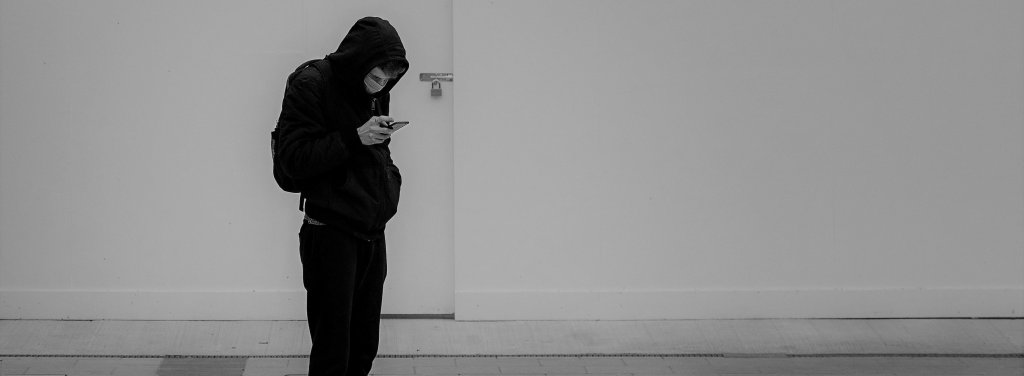As I write this blog, we are entering into the fourth week of so-called ‘lock-down’ across the UK. Despite daily speculation, nobody has any idea how long the restrictions on life will last for.
Everything has changed and this has been hard to cope with in a society where stability and the ordinary continuity of life has been severely disrupted and curtailed; the UK population is currently in limbo, isolated from the wider community and possibly in closer physical contact with family than ever before.
We know why we are doing this – we are reminded multiple times per day – to ‘save lives’ and ‘protect the NHS’.
There has been much talk of the compelling priorities of the health of the nation vs the health of the economy. Arguably initially it was the later that took precedent in this country meaning we are now facing large numbers of fatalities. However, beyond the obvious economic costs of ‘lock-down’ and social distancing, the mental health impact seems to have been largely overlooked.
Why start now?
Despite a strong history and legacy of psychoanalysis and psychotherapy in the UK, mental health provision has long-since slipped from the forefront of policy-makers minds. Gone is the aptitude to be curious and instead a culture of symptoms has emerged increasingly oblivious to the fact that symptoms are communicating emotional and psychic distress. Depression has ceased to be seen as an inability to mourn and is instead an illness to be medicalised – as if it can be caught from the air like Coronavirus.
So, in the midst of the pandemic, it is not surprising that any meaningful discussion on the impacts of quarantine, lock-down and social distancing will have on mental health, not to mention the ongoing rhetoric of how the socially interactive parts of our lives will be ‘changed forever’; today the WHO suggested that wearing a face-mask in public must become the long-term norm without the being any consideration to what the psychological impacts on self and others would be from such a policy. For example, where healthy development of an infant is contingent on them constantly scanning their care-givers face for reassurance and validation, what will the effect be of masking these quite literally behind a surgical mask?
Compelling needs
Whilst some of us may remain in denial, there is no question that social distancing is the only real means available at present to combat this pandemic. It is the oldest method in the book for dealing with epidemics and remains all we have (at present).
However, for relational beings (which is what humans are) the strategy is psychologically and emotionally challenging (and for many catastrophic).
Humans understand themselves and gain a sense of meaning through relationships with others. This is not a luxury – it is essential both as we develop and throughout our lives. Not only do humans needs to be able to communicate verbally, but we also require contact that is ‘non-verbal’.
The mortality of isolation
Isolation may keep us safe from the Coronavirus, however isolation is linked is not the cause of many mental health problems such as depression and anxiety and is fatal, particularly for the elderly (who, it would seem, are also being most impacted by Covid-19). Indeed, some studies have shown that loneliness is, indirectly, the biggest killer of the elderly.
Virtual connections
We live in an age where we can make use of virtual connections and video conference software to stay in touch with each other – my profession – psychotherapy – has overnight shifted to online working to ensure the continuity of therapy sessions. This is a positive, however, it will not migrate the tsunami of mental health and relationship problems that will arrive in the wake of the health crisis.
Meaning making propositions
For many, our daily lives, often revolving around work, provide us with a profound and anchoring sense of meaning and purpose. Not only has the ‘treadmill’ stopped, but with it much of the sense of purpose and meaning that many of us have. These two combined can be difficult to manage contributing to anxiety and depression – a literal crisis of meaning.
Anxiety
In the absence of meaning and purpose, and with the distractions of ‘ordinary’ life removed, anxiety can bubble up. It can leave us with a profound sense of unease and discomfort in our own skin and the wider world. And at present, it is hard to escape from. Of course, in reality anxiety can never be escaped from – it is part of us. It can, however, be faced and used to ask difficult questions about how we live our lives.
Depression
We are faced with a narrative from the media and politicians that ‘things will never be the same again’. I am unsure really what this means other than that it sounds like a warning or premonition of some kind. Being alive means accepting that things cannot remain the same and that we adapt. Change is hard and it forces us to be confronted with difficult emotions that many of us would rather run from. In the current climate of Covid, running from emotions has simply become harder.
Whilst there simply cannot be a national or state managed balance between physical and mental health needs at present, this does not mean that as individuals we cannot be staying with our discomfort and asking ourselves what we ultimately want from this precarious life.
Mark Vahrmeyer, UKCP Registered, BHP Co-founder is an integrative psychotherapist with a wide range of clinical experience from both the public and private sectors. He currently sees both individuals and couples, primarily for ongoing psychotherapy. Mark is available at the Lewes and Brighton & Hove Practices.
Further reading by Mark Vahrmeyer –
Why psychotherapy sessions should end on time
Coronavirus Induced Mental Health Issues
Coronavirus (Covid-19) Counselling
How being ordinary is increasingly extraordinary – On the role of narcissistic defences

Leave a Reply